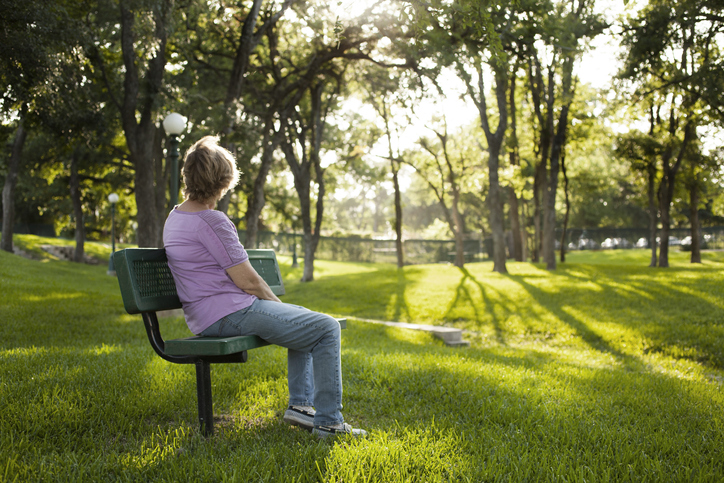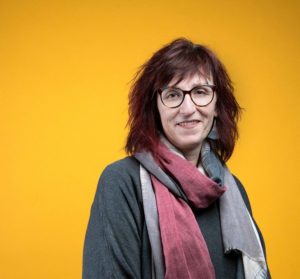
Inclusion for people with intellectual disability means not only being heard but also having influence in how important issues are addressed and remedied.
This is a primary focus of Professor Sally Robinson’s diverse research projects into disability and community inclusion for Flinders’ Caring Futures Institute. One significant research project undertaken over the past three years – The Loneliness Project – has provided a crucial building block in conducting effective research in partnership with people with intellectual disability.
Professor Robinson says the subject of loneliness was a recurring theme raised by people with intellectual disability when she first came to Flinders University in 2019, as she began introducing herself to individuals and organisations in the South Australian disability field.
“I was meeting people with disability to ask what matters to them – and loneliness kept coming up as a priority. It aligned with issues we had identified in earlier research, and was a great opportunity to be responsive to the priorities of the people we were talking to,” says Professor Robinson.
“Loneliness is an entrenched social problem for many people. It’s crucial to recognise and address this issue.”

Building an effective co-designed research program helped address this problem. Professor Robinson worked with fellow academic Jan Idle and Tim Cahalan, a Community Researcher who has intellectual disability – and together they worked with an advisory group of people with intellectual disability to design the project.
“Talking with people who have intellectual disabilities not only identified their loneliness, but more importantly, people came up with solutions that identify what will improve their situation,” says Professor Robinson.
“This took quite a lot of time. It’s a sensitive subject to discuss, but because people with intellectual disability were embedded at the core of this project, there was a high degree of trust and willingness to participate.
“People talked about mutual care – with and for each other – as something that was important for them to counter-act loneliness. A lot of the solutions that people identified were not going to be fixed by simply ‘caring for’ an individual. They are structural, institutional problems that demand different solutions – they are human rights issues, social policy issues.
“We need to be careful to not be reductionist in how we address such problems, but we can explain and communicate the issues very clearly, and identify who is responsible for making necessary changes. Some improvements to reduce loneliness can be made by people themselves, but others are for organisations, or for the whole community to address.”
The clarity of responses from this type of co-designed research and reporting helps crystalise what helps to address loneliness in different ways.
“When there is research-driven evidence, it becomes a wider conversation about what can be changed – and this is the great benefit of co-designed and co-delivered research. We conducted the research in the way people wanted, and present the outcomes in ways that were accessible to them.”
The resulting easy-read report, complete with explanatory illustrations and concise phrases, has been hailed as an important document that people with intellectual disability feel proud of. “It’s something they can clearly understand and share with others,” explains Professor Robinson.
Promoting this report with Tim Cahalan through delivering talks to organisations and conferences has also been impactful. Professor Robinson reflected on Tim’s important contribution to the project, and his growth in confidence through explaining the research and being able to accurately share the thoughts and concerns of other people with disability.
“Empowering people, to make them feel good about themselves and feel assured that their voice and their concerns are being heard, is such an important step,” says Professor Robinson.
“It’s having a ripple effect. This research matters because it has real integrity in the eyes of people with intellectual disability who have contributed to it. These outcomes have been represented in their voice rather than having someone talking on their behalf – and this represents a powerful difference.”
The easy-read report is available from the Research DCI website, multiple advocacy websites (including the PurpleOrange website) and is supported by the publication of an academic journal article – “Loneliness and how to counter it: People with intellectual disability share their experiences and ideas,” by Sally Robinson and Jan Idle, published in the Journal of Intellectual & Developmental Disability, DOI: 10.3109/13668250.2022.2112510
In response to the research, a video has also been produced by Purple Orange with people with intellectual disability discussing their experiences of loneliness and strategies they use to help themselves.
“That’s a really fantastic measurement of the impact this research is having,” says Professor Robinson. “Everyone involved in this project has built trust. We all realise that the co-operative process works and it provides a solid model for the future.
“We have demonstrated to people with intellectual disability that we can listen properly and respond to what really matters to them. This has opened the door for us to do many more things together, including an ARC Linkage project. We don’t get to do big projects unless we get these small projects right.”

